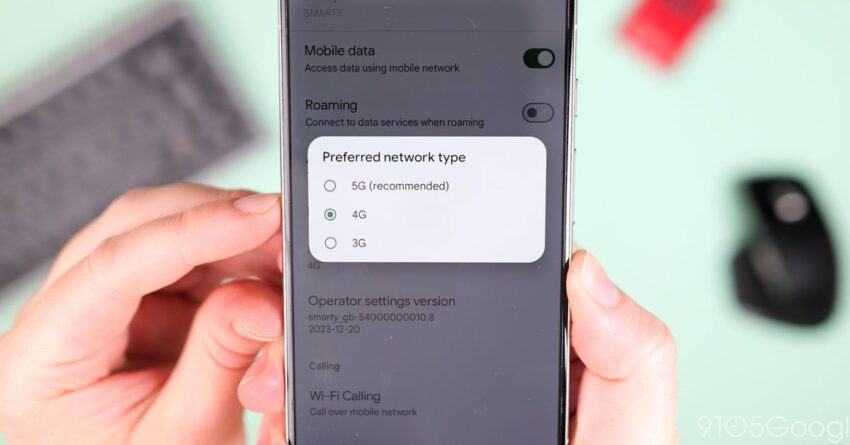
t-mobile reportedly plans to take most of T-Mobile has announced plans to phase out most of its LTE network by 2028, marking a significant shift in its telecommunications strategy as 5G technology becomes increasingly prevalent across the United States.
t-mobile reportedly plans to take most of
The Transition from LTE to 5G
Long-Term Evolution (LTE) technology has been a cornerstone of mobile communications since its introduction over a decade ago. As the industry evolves, however, the focus is shifting towards 5G, which offers faster speeds, lower latency, and improved connectivity. T-Mobile’s decision to begin the retirement of its LTE network reflects a broader trend among telecommunications providers as they adapt to the changing landscape of mobile technology.
Background on LTE Technology
LTE was first deployed in 2009 and has since become the standard for mobile broadband. It enabled users to experience significantly faster data speeds compared to its predecessor, 3G. The technology facilitated a range of applications, from streaming high-definition video to enabling real-time gaming experiences. However, as consumer demands for faster and more reliable connectivity have grown, so too has the need for more advanced technology.
5G technology, which began rolling out in earnest in 2019, promises to revolutionize mobile communications. With its ability to support a higher number of connected devices and provide ultra-reliable low-latency communication, 5G is seen as essential for the future of various sectors, including healthcare, transportation, and entertainment.
T-Mobile’s Strategy
T-Mobile’s plan to phase out LTE is not entirely unexpected. The carrier has been at the forefront of 5G deployment in the United States, often touting its extensive 5G coverage as a competitive advantage. According to reports, T-Mobile aims to begin the process of decommissioning its LTE network as early as 2026, with a complete shutdown targeted for 2028.
This phased approach allows T-Mobile to transition its customer base to 5G while still maintaining service for those who may not yet have upgraded their devices. The carrier is expected to provide ample notice to customers regarding the changes, ensuring that users are aware of the impending transition.
Implications for Consumers
The decision to retire LTE will have several implications for T-Mobile’s customers. As the carrier shifts its focus to 5G, users will need to consider upgrading their devices to take full advantage of the new technology. Many existing smartphones are already 5G-compatible, but older models may not support the new network.
Device Upgrades
For consumers, the transition to 5G may necessitate an upgrade cycle. T-Mobile has been proactive in promoting 5G-compatible devices, often offering incentives for customers to switch to newer models. As the LTE network is phased out, customers with older devices may find themselves unable to access mobile data services, prompting a need for timely upgrades.
Potential Challenges
While the transition to 5G presents numerous benefits, it is not without challenges. Some consumers may face difficulties in upgrading their devices, particularly those who are not well-versed in technology. Additionally, there may be concerns regarding the availability of 5G coverage in certain areas, especially in rural regions where infrastructure development may lag behind urban centers.
Industry Reactions
T-Mobile’s announcement has elicited varied reactions from industry stakeholders. Competitors such as Verizon and AT&T are expected to follow suit, although specific timelines for their LTE phase-out plans have not yet been disclosed. The competitive landscape in the telecommunications sector is rapidly evolving, and carriers must adapt to maintain their market positions.
Competitor Strategies
Verizon and AT&T have invested heavily in their own 5G networks and may be considering similar strategies for their LTE services. As T-Mobile leads the way in announcing its plans, other carriers may feel pressure to accelerate their own transitions to 5G. This could lead to a more competitive environment, benefiting consumers through improved services and potentially lower prices.
Regulatory Considerations
Regulatory bodies may also play a role in the transition from LTE to 5G. The Federal Communications Commission (FCC) has been actively involved in promoting the expansion of 5G infrastructure across the country. As T-Mobile and other carriers move forward with their plans, regulatory oversight will be essential to ensure that consumers continue to have access to reliable mobile services.
Future of Telecommunications
The shift from LTE to 5G is indicative of the broader trends shaping the telecommunications industry. As technology continues to advance, the demand for faster, more reliable connectivity will only increase. The transition to 5G is not just about speed; it also encompasses the potential for new applications and services that were previously unimaginable.
Emerging Technologies
5G technology is expected to enable a host of emerging technologies, including the Internet of Things (IoT), autonomous vehicles, and smart cities. These innovations will rely on the high-speed, low-latency capabilities of 5G networks. As T-Mobile phases out its LTE network, it is positioning itself to be a leader in these transformative technologies.
Global Trends
Globally, the transition to 5G is already underway, with many countries investing heavily in infrastructure to support the new technology. T-Mobile’s plans align with these global trends, as carriers worldwide recognize the need to adapt to changing consumer demands and technological advancements. The company’s proactive approach may serve as a model for other carriers looking to navigate the transition effectively.
Conclusion
T-Mobile’s decision to phase out most of its LTE network by 2028 marks a significant milestone in the evolution of mobile telecommunications. As the carrier shifts its focus to 5G technology, consumers will need to adapt to the changes, including potential device upgrades and navigating the new landscape of mobile services. The implications of this transition will be felt across the industry, prompting competitors to reevaluate their strategies and regulatory bodies to ensure consumer protection. As T-Mobile leads the way, the future of telecommunications is poised for exciting developments that will shape how we connect and communicate.
Source: Original report
Was this helpful?
Last Modified: October 6, 2025 at 11:05 pm
1 views















